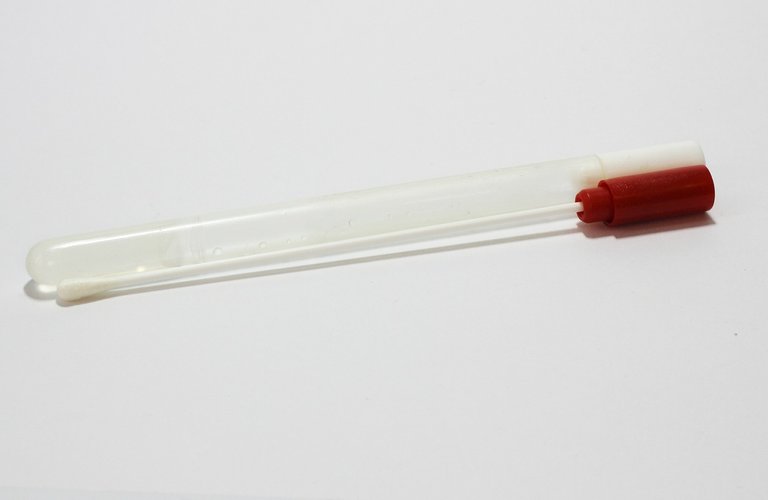
On Monday, the California Supreme Court ruled in favor of a state law that requires law enforcement to collect the DNA of arrestees accused of committing a felony. The 4 to 3 split decision overturned a previous decision from a lower court which found that the law violated protections from invasions of privacy and search and seizure as guaranteed by the California state constitution.
Established after a 2004 vote, Proposition 69 has allowed law enforcement to collect and store the DNA profiles of tens of thousands of people who have been arrested but may have never been charged or convicted. The practice is not unique to California and has been approved by the U.S. Supreme Court, but that has not stopped privacy advocates from fighting to overturn the controversial measure.
The Electronic Frontier Foundation reported on the details of the ruling:
The case, People v. Buza, involved a San Francisco man who challenged his conviction for refusing to provide a DNA sample after he was arrested. California law allows police to collect DNA from anyone arrested on suspicion of a felony—without a warrant or any finding by a judge that there was sufficient cause for the arrest. The state stores arrestees’ DNA samples indefinitely, and allows DNA profiles to be searched continuously by local, state, and federal law enforcement agencies.
EFF weighed in on the case in 2015, filing an amicus brief arguing the state’s constitution prohibits the collection of DNA from arrestees because of the severe impact DNA collection has on our right to privacy. Our DNA contains our entire genetic makeup—private and personal information that maps who we are, where we come from, and whom we are related to.
The EFF also noted that every year, tens of thousands of Californians who are arrested, but never charged or found guilty, are impacted by this law. In addition, California state rules are often a hindrance to individuals seeking to have their information removed.
The majority wrote that the provisions of the DNA Act of 2004 are legal according to state and federal law. They dismissed arguments that the DNA collection in the form of a cheek swab violated Mark Buza’s privacy or sovereignty. The California Supreme Court accepted the federal government’s argument that a DNA sample is no different from a fingerprint. Perhaps most disturbing of all for privacy advocates, the majority ruled that the government’s interest in “identifying” an arrestee outweighs the arrestee’s right to privacy.
Justice Cuellar and Justice Liu did not agree with the majority’s assessment, stating that it was a violation of privacy and disproportionately affected minority populations.
“This is not a scheme carefully calibrated to identify felony offenders. Instead, it can be fairly described as a biological dragnet,” Liu wrote. “The fact that felony arrests of African Americans disproportionately result in no charges or dropped charges means that African Americans are disproportionately represented among the thousands of DNA profiles that the state has no legal basis for retaining.”
Justice Cuellar said a DNA sample differs from fingerprints because it contains an arrestee’s entire genetic code, which includes their race, biological sex, ethnic background, familial relationships, behavioral characteristics, health status, genetic diseases, pre-disposition to certain traits, etc. Justice Liu also painted a dark picture of what this type of action could lead to if not limited or eliminated by the courts, stating that “it is not that far a step for the state to collect and retain DNA from law-abiding people in general.”
Donate via:
Bitcoin: 16fDdrZvt9XUv7TyboSYtaHfcxMb22Yiew
Ethereum: 0x8d20b442de44C28467b3d66939ff3077F9CfCb24
DASH: XbPpwz1ZvtkTeik1y3wDgrHRJTEst564XH
I am always available for interviews, Please contact [email protected]
I greatly appreciate any support here or on my other social media:
| YouTube | Facebook |

While this is a terrible invasion of privacy and an outright theft of DNA that will undoubtedly result in nefarious misuse by state actors. It pales in comparison to the number of asleep sheeple that voluntarily pay to be added to the giant DNA library being amassed by criminal corporations Ancestry.com, 23 and me, and others who turn around and resell that info to the criminal state, law enforcement, intelligence agencies, marketing companies, and whoever else will pay up.
Is photographing and fingerprinting those who are arrested a terrible invasion of privacy as well? Those people who voluntarily send their DNA in are out of their fucking minds, they are just stupid. But how can you put a price on something telling you have 5% Native American DNA? In the ad the motherfucker heads for the nearest powwow after he finds out he is only 95% white.
I @danur upvote your post @dbroze. I as a small fish always follow the big fish posts to build my cooperation with them. and I hope that those who are already big want to visit my blog anytime. hopefully I am part of their project. thanks
I'm sorry to say but convicted felons deserve to have their privacy invaded
really? First of all, You didn't read the article correctly. It says all people arrested suspected of a felony. That means innocent people who are later found not guilty will have their DNA collected. Also, I am the author of this article and I was convicted of a felony in 2005 for possession of drugs. I harmed no one. Yet you believe I should my rights violated and my DNA taken? Is that really what you are saying?
Let me know when you are in Santa Fe I just got a house there!
shoot me an email! derrick at the consciousresistance dot com
These are well established legal principles, until and unless the state does anything with the DNA samples but use them exactly as they use fingerprints now it's not a legal problem. Reading the dissenters is laughable, they claimed this was a racist policy because so many black people get arrested! Then they followed up with a slippery slope fallacy, despite the fact that they don't collect everyone's fingerprints. If you don't want to be in the system, don't get arrested.
"If you don't want to be in the system, don't get arrested."
really? Do you really believe all the arrests made by police are just?
First of all, You didn't read the article correctly. It says all people arrested suspected of a felony. That means innocent people who are later found not guilty will have their DNA collected.
Also, I am the author of this article and I was convicted of a felony in 2005 for possession of drugs. I harmed no one. Yet you believe I should my rights violated and my DNA taken? Is that really what you are saying?
I am sure I didn't say they were all just, however even the unjust ones are often avoidable and the just ones always are right?
"First of all, You didn't read the article correctly. It says all people arrested suspected of a felony. That means innocent people who are later found not guilty will have their DNA collected."
Uh huh, where did I say differently?
"Yet you believe I should my rights violated and my DNA taken? Is that really what you are saying?"
I am sure I never ever said your rights should be violated.
Which of your rights was violated exactly?
How are you having your rights violated by being identified? Were your rights violated when they took your fingerprints?
What drugs were you convicted of selling?
Congratulations on authoring this article, I enjoyed reading it.